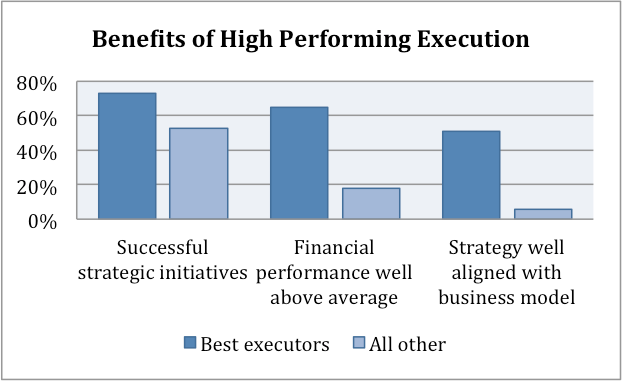Project success: everyone wants it, yet completely successful projects are rare. Why? Everyone has an opinion, but what if that opinion is baseless? Organizations will spend millions on improving processes that will make no difference, or worse, harm the performance.
My firm commissioned an independent research study to identify what is really making a difference in project performance, including:
-What are the most common PM practices used?
-Which are producing the best results?
-What practices are not?
-Do managers know the difference?
The findings were eye-opening.
Many organizations have made (and continue to make) large investments in improving project performance over the last decade.
-Providing training for project managers and teams following the rigor of PMI’s PMBOK® to build maturity and capability
-Establishing PMOs to build project management skills
-Aligning projects to business strategy, putting a business focus on projects at high levels
Investments in discipline, control, and planning have made a positive difference in many organizations’ ability to satisfy scope, customer, and business requirements. However, these improvements have been offset by widespread failures in budget and schedule. For example, a 2012 Accenture survey found that more than 30 percent of capital projects are completed over budget, and more than 35 percent are finished late.
Project Management Training and PMOs
When analyzing the results of investments specific to project management skills training and PMO establishment, the situation is no better.
In the last 20 years, there has been a 1,350 percent increase in the number of Project Management Professionals. During that time, organizations report improvements only in scope, quality, and business benefits. Surprisingly, more training correlates to a decline in schedule and budget performance.
PMOs fare even worse. Even though 70 percent of organizations surveyed have invested in a PMO, a 2014 PMI survey found that the overall difference in performance between organizations with and without a PMO is only 1 percent. Further, a 2012 PwC survey found that organizations implementing a PMO show declines in all five key project success factors: scope, quality, business benefits, budget, and schedule.
The Missing Emphasis on Project Execution
Our analysis shows the main cause of these results is the reliance on the PMBOK®, which emphasizes specification and control; it offers almost no guidance for executing projects. Less than 10 of the over 450 pages in the PMBOK® guide reference project execution, leaving it fully to the expertise and experience of each project manager.
Not everyone is missing this link. Organizations that are successful in project execution are reaping huge rewards, both in financial performance and success of their strategic initiatives. The “best executors” have financial performance well above average: a striking 65 percent better than others.
I’m neither suggesting that training should not be delivered, nor that PMOs or centers of process excellence are bad ideas. Instead, we need to take a look at the content and methodology.
To deliver the results in budget and schedule, executives must build a culture of delivery excellence that aligns projects to strategic objectives, makes on-time delivery a primary objective, and emphasizes both planning and execution results. To do this, organizations must develop the processes to execute well and establish appropriate governance to reinforce behaviors that drive results.
For More Information. To access the full research findings (free!), which were compiled from surveys of over 4,000 professionals in over 40 industries and countries, as well as interviews with C-level executives in 22 countries, download your project management research report here.


